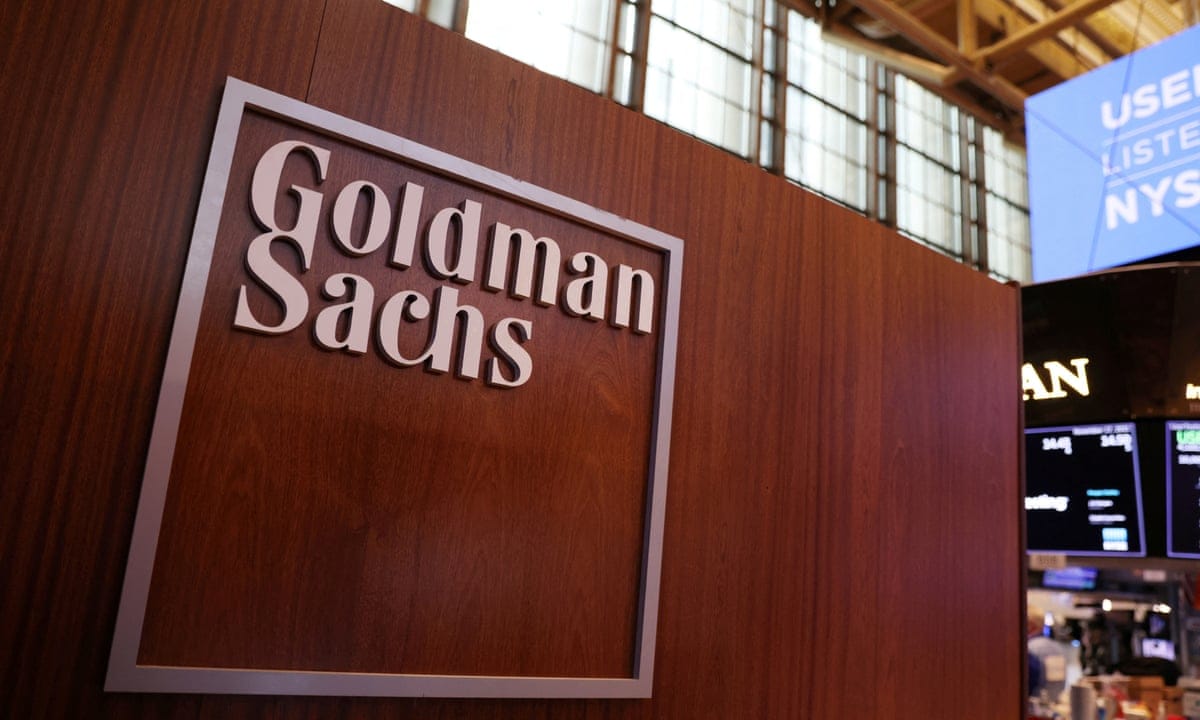Goldman Sachs has enhanced compensation packages for its employees by 17%, following a significant rise in profits during the second quarter amidst an increase in dealmaking activities. The investment powerhouse allocated $4.2 billion (£3.2 billion) to employee remuneration and benefits, which included salaries, pensions, and individual bonuses for its 45,300 employees from March to June—an almost 20% increase compared to the previous year's equivalent period.
Goldman Sachs has reportedly spent $8.8 billion on staff compensation since the beginning of January, attributing this substantial investment to its improved operational performance. The firm disclosed that second-quarter profits saw a remarkable 150% surge from last year's figures, reaching $3 billion as opposed to the $1.2 billion reported earlier in the fiscal year.
The uptick in profits was primarily due to heightened dealmaking activity with investment bankers facilitating various mergers and acquisitions. Noteworthy transactions include Goldman Sachs' role as a broker for ExxonMobil’s $60 billion acquisition of Pioneer Natural Resources, alongside competitors Morgan Stanley and Citigroup.
David Solomon, the chairman and CEO at Goldman Sachs, commented on these results: "We are pleased with our robust second quarter performance and our overall achievements in the first half of the year, signifying strong growth across our banking, markets, asset and wealth management divisions."
A recovery from a prolonged downturn in dealmaking over the past two years was witnessed due to high borrowing costs and global economic uncertainty. However, an optimistic financial outlook and potential reductions in interest rates by central banks have revived demand for banking services. This resurgence is anticipated to result in increased bonuses, including those of Goldman Sachs' 6,000 staff based in the UK, who are no longer constrained by a previous bonus cap limiting payouts to twice an individual’s salary.
The bonus cap was initially introduced as part of regulatory reforms post-2007 financial crisis, intended to discourage short-term gains at the expense of long-term stability in banking operations. The incoming chancellor, Rachel Reeves, had previously stated that her party would not reconsider this cap when they secured a general election win.
Read next

Ryanair plane had only six minutes of fuel upon Manchester landing, records show
Flight Narrowly Avoids Disaster After Storm Diversion
An inquiry has been launched after a Ryanair flight, struggling against severe winds during storm Amy last week, landed at Manchester Airport with only six minutes’ worth of fuel remaining.
The aircraft had been transporting passengers from Pisa, Italy, to Prestwick, Scotland, on

"Qantas customer data for 5 million exposed as hackers release info post-ransom deadline"
Hackers Leak Personal Data of 5 Million Qantas Customers on Dark Web
A cybercriminal group has released personal records of 5 million Qantas customers on the dark web after the airline did not meet their ransom demand.
The breach is part of a larger global incident affecting over 40 companies,

Investors flee record-high UK stocks as EU set to hike steel tariffs
Investors Withdraw Record Sums from Equity Funds Amid High Market Valuations
Data reveals that investors in the UK have withdrawn an unprecedented amount of money from equity funds over the past three months, driven by concerns over soaring stock market valuations.
According to the latest figures from Calastone, the largest

